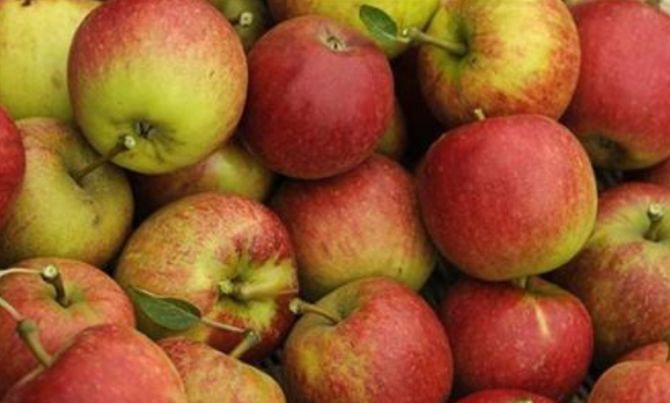India’s recent move to remove additional ‘retaliatory’ duty on eight products from the United States (US), including apples and walnuts, would not have any negative impact on the domestic producers, the government clarified, even as the issue threatened to snowball into a political slugfest between the ruling and Opposition parties.

The move would, in fact, result in competition in the premium market segment, ensuring better quality at better prices for consumers, especially for apples, a senior government official said.
“There were certain concerns that were being raised on the mutually agreed solution that has come in, more specific to seven-eight agriculture products where we had levied additional import duties in retaliation to the steel and aluminum measures (imposed by the US),” Peeyush Kumar, additional secretary in the commerce department, told reporters in a briefing.
“So only the additional (import duty) has been removed.
"The basic customs duty rate of 50 percent is applicable (in the case of apples).
"When we had raised the additional duty against America, it had a disadvantage.
"It had lost a certain market that was taken up by other countries like Iran, New Zealand, Chile, and Turkey. By revoking this additional duty, the US will be able to compete with these markets,” Kumar said.
Besides this, US apples also attract a minimum import price (MIP) of Rs 50 per kg for imports from all countries except Bhutan to protect against the dumping of low-quality apples and from any predatory pricing in the Indian market.
“US apples, walnuts, and almonds would compete on the same level playing field as all other countries,” an official statement from the department of commerce said.
The statement came against the backdrop of the local farmers and producers anticipating losses, especially the apple and walnut growers from Kashmir, since Washington will now get greater market access for these items.
Apple is largely grown in Jammu and Kashmir and Himachal Pradesh.
Together the two states account for almost 97 per cent of the 2.4-2.5 million tonnes of apples grown in India domestically.
“This decision of the government, to abolish the additional import duty, will lead to the flooding of apples from the US into India at the cost of Indian farmers.
"Apples for the US are definitely of a higher quality as they are grown in a mechanised way.
"Also, the subsidy that a US farmer gets is far more than what an average Indian farmer gets.
"Therefore, it tilts the balance in favour of US farmers,” Sohan Thakur, convenor of the Apple Farmers’ Federation of India, told Business Standard.
The opposition Congress, too, joined the issue, with its Spokesperson Supriya Shrinate asking, “What happened to the slogan of 'vocal for local'? Why is the prime minister trying to please the Americans by offering concessions?”
To which, Amit Malviya, BJP’s national IT department in-charge, said that the Congress should stop lying about the change in import duty on US apples.
The commerce department, meanwhile, tried to assuage the fears, saying that it was ‘closely monitoring’ the import of these products and was open to discussing the matter with the home ministry, agriculture ministry, and the state of Kashmir.
According to an analysis done by the department of commerce, there had been an increase in apple imports from countries other than the US, from $160 million in FY19 to $290 million in FY23.
Similarly, in the case of walnuts, the imports increased from $35.11 million in FY19 to $53.95 million in FY23.
“In the last three years, the import of almonds has been about 233,000 mt, while domestic production is only 11,000 mt, and India is highly dependent on imports.
"Therefore, the removal of additional duties will now ensure fair competition among the countries which are exporting these products to India,” the statement said.
The dispute
India had imposed an additional duty on the US, over and above the basic customs duty, on 28 items over four years ago, as a retaliatory measure after steel and aluminum tariffs were hiked during former US President Donald Trump’s regime.
In June, both sides firmed up a mutually agreeable solution at the World Trade Organization (WTO), under which, in June, India agreed to remove retaliatory tariffs on seven agricultural products such as lentils, walnuts, apples, almonds and in return an equivalent value of steel will be allowed to enter the US.
Thereafter, last week, the revenue department notified removal of the additional duties of 20 per cent, each on apples and walnuts and Rs 20 per kg on almonds.
There is no reduction on the most favoured nation (MFN) duty on apples, walnuts and almonds, which still applies to all imported products, including US-origin products, at 50 per cent, 100 per cent, and Rs 100 per kg on apple, walnuts and almonds, respectively.











